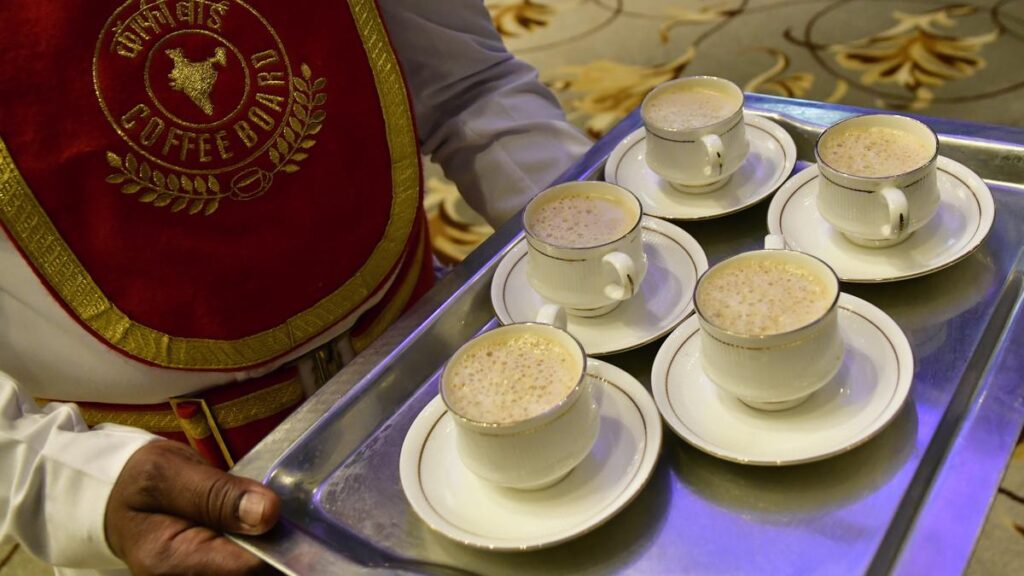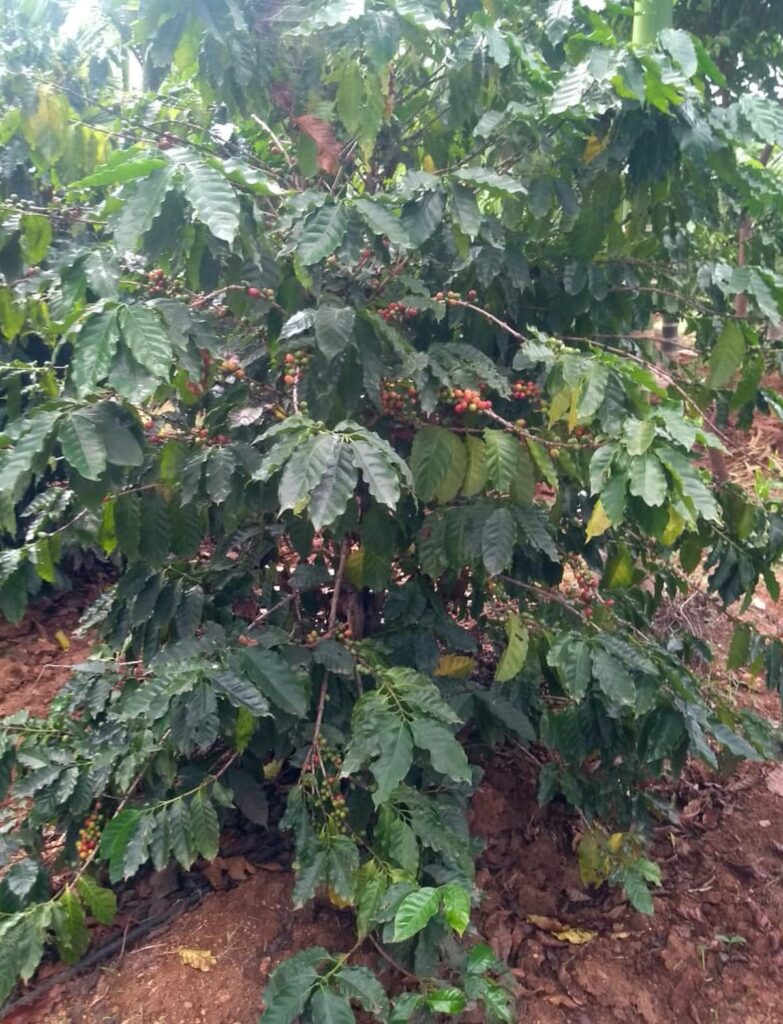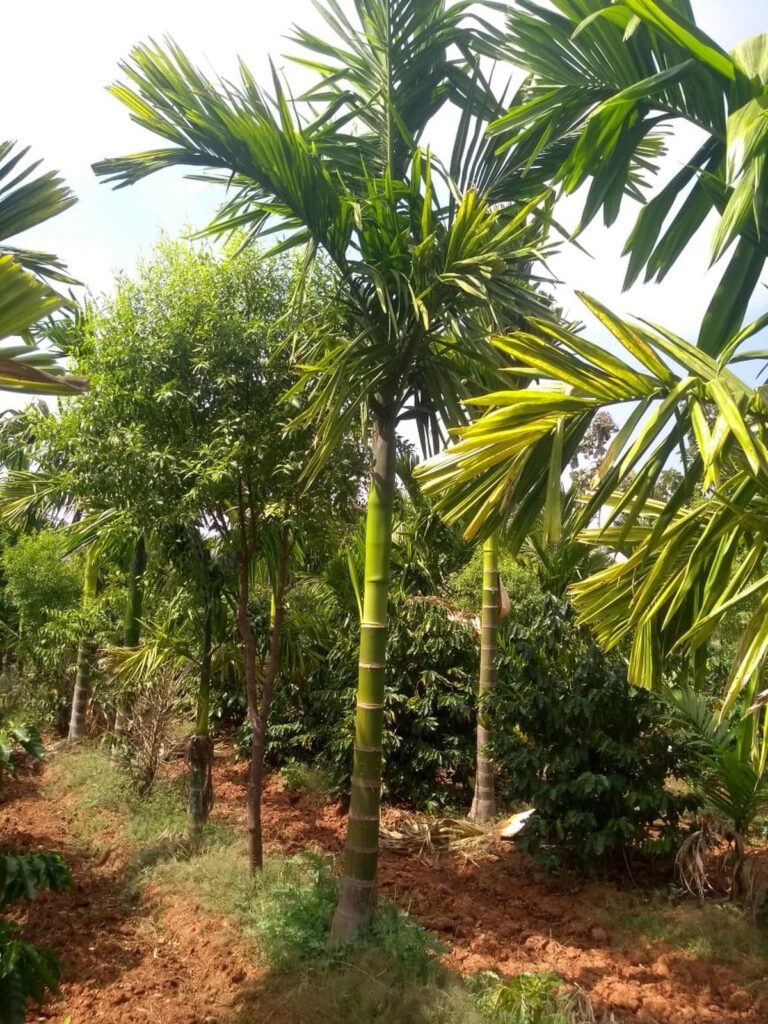In a pretty little camp in Coorg, you can find one of the world’s most expensive coffees. The rider: it comes in the guise of cat poop
Kari Beckoo (so called in Kannada) or Kopi Luwak is one of the most expensive, most aromatic coffees in the world. Internationally, it can fetch anywhere between Rs 15,000 and 20,000 a kilo. A cuppa will set you back by a cool Rs 2,000. For something so obviously exclusive, Kopi Luwak (as it is known in Indonesia and the Philippines), has very down to earth origins.
Type: Food discovery
Best from: Bengaluru
You need: 2 days

Coffee beans drying in the sun are a common site on most house terracesin the area and estates. Pics/ AMrita Bose
It comes from the poo of the civet cat. Our visit to the Civet Creek Camp, located 18 km from Madikeri, the district headquarters of Kodagu or Coorg, was centred around an agenda very different from that of regular tourism. We were hot on the trail of the Asian Palm Civet cat and its bowel movements to inspect it from a purely epicurean perspective. The Palm Civet cat’s droppings, left under coffee plants, are responsible for one of the most expensive and aromatic coffees in the world.

The Palm Civet Cat feeds on ripe coffee berries that are partly digested
and worked on by enzymes before being discarded in its excreta.
Bordered by reserve forest area and frequently visited by civet cats, Civet Creek Camp was started three years ago on an eight-year-old coffee estate that offers accommodation only in tents. Pitch your own tent in the open or borrow one under a shack and you are all set to play (boy or girl) scout. Warm up with rope walking, air rifle shooting, trampling, or spider walking or just lie on the web at night to watch the stars.
We timed our visit with the beginning of the coffee picking season — just after December; usually the time when civet cats eat ripe coffee berries. Although the owner Madappa warned us about the difficulty of finding droppings since the season was almost over, we were determined.
Mission poo
The area frequented by civet cats was near a waterfall in a forest area bordering a village called Awandur. Getting there involved trekking a distance of four kilometres on foot. We set out early in the morning with our guide Vasu, who is considered a poop-spotting expert.
The trek involved meandering through narrow coffee estate pathways, through terraced fields, passing by thatched roofed homes and watching coffee beans drying in the sun while scarecrows stood guard next to a couple of new homes under construction. Here, the scarecrows help ward off the evil eye and bring in good luck.
Like a hound strong on the trail of blood, Vasu was on high alert by now, poking around in coffee bushes as we trudged uphill next to a meandering stream fed by a waterfall. On the way, we spotted a giant Shikakai tree — a natural detangler for hair — the black sooty sap of which is extracted for incense sticks and the occasional cardamom plant.
Vasu explained that Coorg was originally known for its cardamom plantations, not coffee, but dwindling labour forces in recent years, and the vulnerable nature of cardamom plants had given way to hardy coffee plantations of Arabica and Robusta varities.

A rare species of a fiery coloured snail found in forests nearby
A cat with good taste
Suddenly, Vasu disappeared under a thick coffee shrub only to emerge with what looked like sticky peanut chikki. A little squeamish, we approached it with trepidation. Strangely odourless, the poop contained half-eaten coffee beans.
Enzymes in the cat’s digestive system work on the beans, breaking them down before it’s excreting from its body. The part-digested beans are separated from the dung by washing them thoroughly, and keeping them in water, before drying and roasting them.
The fact that this coffee is completely organically processed, and that the civet cat is one with good taste (it picks only the best coffee beans for consumption), goes a long way in determining the delicate flavour and the aroma associated with this frightfully expensive coffee.
Although the estate doesn’t produce enough to brew or sell this coffee on a largescale basis, the coffee board is willing to accept it at between Rs 3,000 and 5,000 a kilo.
Expensive stash
Eventually, we made it back to Civet Creek Camp in a happy daze, clutching at our prized discovery now neatly sealed in a plastic bag. Oh, and the regular coffee beans drying in the sun that Coorg is oh-so-famous for? We couldn’t care less. The writer travelled to Civet Creek Camp on invitation.
Bored of expensive cat potty? Here’s what you can do in and around Civet Creek Camp
Talakaveri: The birthplace of River Kaveri and a known pilgrimage site, Talakaveri is located on the Brahmagiri hills. The river originates as a spring and feeds into a tank where pilgrims bathe.

Jumping on a trampoline is one of the acitivities offered here.
Dubare Elephant Training Camp: Located about 40 km away from Civet Creek, this elephant training camp is run by the Karnataka Forest Department. It houses elephants that are trained under naturalists, and doubles up as a tourist spot. It’s located on the banks of the River Kaveri, with the Dubare Reserve Forest as a backdrop.
Tourists are allowed to participate in a three-hour interaction with elephants which begins with their grooming and scrubbing, feeding them and taking them on a 45-minute ride in the jungle. Resident naturalists will also give you a lowdown on all you need to know about these pachyderms. You need to reach the camp by 8.30 am.
Abbey Falls: Also known as Abbi or Abbe, this waterfall is located in a private coffee estate among pepper trees, about seven km away from Madikeri. A hanging bridge opposite the waterfall offers a breathtaking view.
Kaveri Nisargadhama: A picnic spot on an island formed by river Kaveri is a nature resort with a deer park, orchidarium and a forest full of bamboo, teak and rosewood. The island can be accessed via a hanging bridge. You can rent out tree houses run by the forest department.
Stock up on Coorgi delights
Coffee Powder: A mix of Arabica and Robusta, you can buy filter coffee from the Coffee Board or local shops at Madikeri.
Coorgi Pork Masala: The perfect aid to making the famous Coorgi Pandhi or Pork Curry. Also don’t forget to buy a bottle of black vinegar extracted from Kachampuli, a wild, tart fruit. This vinegar gives that distinct black colour and tangy flavour to the Pandhi curry.
Spices: Stock up on nutmeg, star anise, pepper and cardamom.
Civet Creek Camp FAQs
It only offers tent accommodation with common bathrooms. The camp organises treks to nearby waterfalls, mountain peaks and coffee estate walks. You can request for a special trek to spot civet cat droppings along with estate coffee pickers. Night treks can be organised too. Rs 1,350 per night per person gets you two breakfasts, lunch, dinner and barbeque with unlimited coffee, tea or juice.
Call: 9845827010
Email: civetcreek@gmail.com

Getting there
BY ROAD: Karnataka State Road Transport Corporation (KSRTC) Volvo buses, known as Airavat, leave Bengaluru every day at 2 pm, 4 pm and 11 pm, and take you to Coorg in five hours. Frequent buses from Mysore are available too. Take any bus going to Talakaveri or an auto rickshaw, and get off at the Betegeri village junction to get to Civet Creek Camp.
BY RAIL: The nearest rail head is Mysore which is connected to all major cities and is two-and-a-half hours away from Madikeri.
BY AIR: The nearest airport is Mysore (120 km) followed by Mangalore (135 km) and Bangalore (250 km).
BEST TIME TO GO: The best time to visit Coorg is between October and March. The weather is pleasant during the day but temperatures may dip at night. Carry a jacket.
source: http://www.mid-day.com / by Amrita Bose / 2011.03.06 / Place: Mumbai










